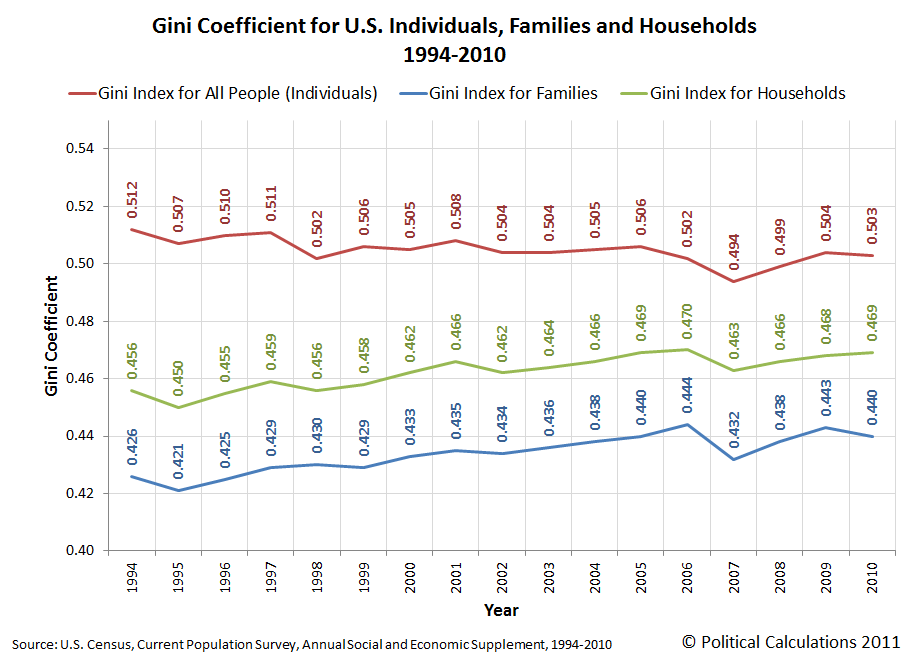Why is income inequality rising for U.S. families and households, but not for individual Americans?
Having now shown that there has been absolutely no significant change in the level of inequality among U.S. individual income earners from 1994 through 2010, we thought we'd take a step back and look at the data for U.S. families and for households to examine those trends over time.
The chart below shows what we find for each grouping of Americans according to their Gini Coefficient, where a value of 0 indicates perfect equality (everyone has the same income) and a value of 1 indicates perfect inequality (one person has all the income, while everyone else has none):

Think about it. The reason that the income inequality levels recorded for families and households are lower than those for individuals are because most families and households may have one high income earner, who is balanced out by individuals within the families or households who have low or no incomes.
But, if people with very high income earning potential join together to form families and households, and increasingly do so over time, perhaps because such people might have things in common that make forming themselves into families and households an attractive proposition, then income inequality among families and households will increase.
The same holds true for the opposite end of the income earning spectrum. If people with really low income earning potential join together to form families and households, or perhaps if they choose to split apart, and increasingly do so over time, then the resulting low income family and household will also make income inequality among families and households rise, even though there has been no real change in the amount of actual income inequality among individuals.
No comments:
Post a Comment